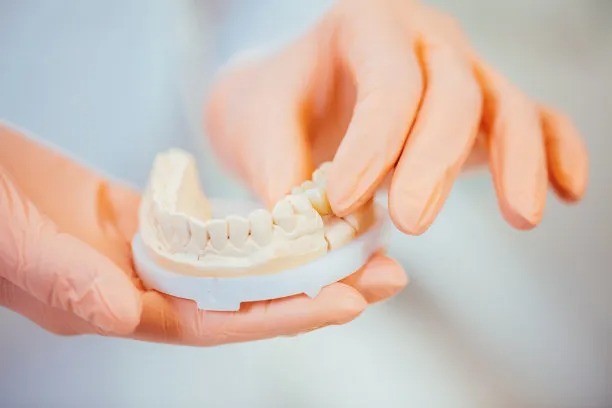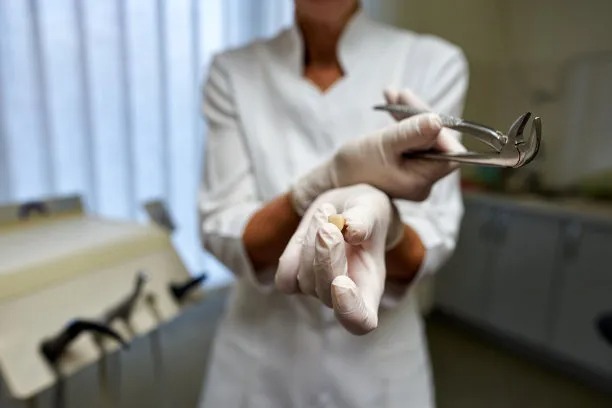Summary: Dental fillings are essential procedures that help restore damaged teeth and maintain oral health. However, ensuring optimal results requires attention before and after the treatment. This article discusses four critical aspects to consider: understanding the filling procedure, preparing for the appointment, post-treatment care, and maintaining long-term oral health. By implementing these guidelines, patients can enhance the effectiveness of their dental fillings and promote overall dental hygiene. Following these steps not only assists in recovery but also contributes to a healthier smile for years to come.
1. Understanding the Filling Procedure

Before undergoing a dental filling, it is crucial to have a good understanding of what the procedure entails. Dental fillings are typically used to treat cavities caused by tooth decay. During the procedure, the dentist removes the decayed portion of the tooth and fills it with a suitable material, which can be amalgam, composite resin, or gold. Knowing the steps involved helps ease anxiety and prepares patients mentally for the treatment.
It is also essential to discuss any concerns or fears with your dentist beforehand. Understanding the specifics of the filling procedure, like anesthesia options and the expected duration, can significantly reduce anxiety. Patients should feel comfortable asking questions to ensure they know what to expect.
Moreover, asking about the materials used during the filling can help in making informed choices, especially for individuals with allergies or sensitivities. Being well-informed empowers patients, ensuring they play an active role in their dental care.
2. Preparing for Your Dental Appointment
Preparation is key to a successful dental filling procedure. One essential step is to maintain good oral hygiene leading up to the appointment. Brushing and flossing regularly can help minimize the risk of additional decay or infection, ensuring that the site of the filling is as clean as possible.
It may also be beneficial to avoid certain foods and beverages before the appointment. Steer clear of sugary snacks and drinks, as they can contribute to further decay. It might also be advisable to avoid caffeine, as it can heighten anxiety levels prior to the procedure.
Additionally, if sedation will be used during the filling, patients should arrange for a designated driver to transport them home afterward. Knowing what to bring, such as insurance information and any medical history relating to dental care, can facilitate a smoother check-in process.
3. Post-Treatment Care for Dental Fillings
Post-treatment care is just as important as preparation when it comes to dental fillings. After the procedure, patients may experience some numbness and sensitivity in the filled tooth. It is crucial to avoid chewing on that side of the mouth until the anesthesia wears off to prevent accidental biting. Being cautious during this time protects the treated area from damage.
In the days following a filling, patients might experience some sensitivity to hot and cold temperatures. It is advisable to avoid extremely hot or cold foods and beverages until the sensitivity subsides. If discomfort persists, contacting the dentist is recommended to rule out issues with the filling itself.
Maintaining good oral hygiene is essential even after a filling. Continue to brush and floss gently around the area, ensuring to keep it clean. Regular dental check-ups and cleanings will help monitor the condition of the filling and the surrounding teeth, ensuring long-term oral health.
4. Long-term Maintenance of Oral Health
Once the filling has been completed and healing has occurred, long-term maintenance of oral health becomes paramount. Implementing a regular oral hygiene routine is the first step. Brushing at least twice daily and flossing helps prevent new cavities from forming, which is crucial for the longevity of dental fillings.
Diet also plays a significant role in maintaining optimal oral health. Reducing sugar intake and incorporating more fruits and vegetables can help strengthen teeth and gums. Staying hydrated is also essential, as it promotes saliva production, which naturally protects the teeth from decay.
Finally, committing to regular dental check-ups every six months ensures that any potential issues are identified early. During these visits, your dentist can assess the condition of existing fillings and provide professional cleaning, further promoting a healthy mouth.
Summary:
Practicing these essential guidelines both before and after dental filling procedures significantly enhances oral hygiene and overall well-being. By understanding the process, preparing adequately, caring for the filled tooth, and focusing on long-term maintenance, patients can ensure the best outcomes for their dental health.
This article is compiled by Vickong Dental and the content is for reference only.
Vickong Dental
Vickong Dental is a large medical group established in Hong Kong in 2008 by professors from well-known medical universities in Guangdong and Hong Kong, as well as medical doctors from key national '985' universities (including Master's supervisors and senior professors). The chain of branches brings together expert dentists with PhDs and Master's degrees from Hong Kong and Mainland China, committed to providing high-quality dental treatment.
"Vickong Dental Practices the University Motto of 'Healing and Serving Society,' with a Stable Operation for Sixteen Years. It Has Been honored with Hong Kong Enterprise Leaders's Choice,' and is a Global Trusted Implant Center for the Nobel Implant System. Recommended by Hong Kong Metro Broadcast and Guangdong Television, it Serves Customers from Over Thirty Countries and Regions, Gaining the Trust and Favor of Citizens from the Guangdong-Hong Kong-Macau Greater Bay Area and Surrounding Cities.

Thousands of customers' unanimous praise
The most recognized and highly recommended dental service by customers in the Guangdong-Hong Kong-Macau Greater Bay Area
We Ensure You Receive Detailed Care and Attention Here
Hong Kong standards, Shenzhen prices, Your Trusted English-speaking dentists

Vickong Dental Medical-Grade Instrument Disinfection Process
Vickong Dental Medical-Grade Instrument Disinfection Process

Vickong Dental Chain: A Warm and Comfortable Environment for Treatment






Appointment Hours

Q&A
Why choose Vickong Dental?
Vickong Dental practices the university motto 「Medicine to Benefit Society」, with each branch bringing together highly qualified dentists with doctoral and master’s degrees from Hong Kong and the Mainland, and has maintained seventeen years of steady operation。Recipient of 「2024 Hong Kong Enterprise Leaders Brand」, 「2025 Hong Kong Enterprise Leaders Brand」, a Nobel Biocare Global Trusted Implant Center, and a brand recommended by Metro Radio Hong Kong and Guangdong TV。
To date, we have served customers from more than thirty countries and regions,earning exceptionally high word-of-mouth recognition and trusted recommendations from residents across the Guangdong-Hong Kong-Macao Greater Bay Area and surrounding cities
We have eight major branches in Zhuhai、Shenzhen,and a consultation and service assurance center in Hong Kong,so you can book a free consultation at any time for any questions,which is very reassuring.
If I do not accept the quotation after the CT scan, will I be charged??
No! As long as the actual treatment has not started, you will not be charged any fees.
Will there be any additional charges during the treatment process?
No, there won’t be any additional charges. Before treatment begins, we will clearly explain the treatment plan and its corresponding fees. Only after the patient agrees and signs the consent form will we proceed with the dental service.
Can I pay in Hong Kong dollars?
Yes. Vickong Dental accepts payment in Hong Kong dollars. The amount will be converted based on the exchange rate of the day, and the applicable rate will be clearly communicated to you in advance.
Can I reschedule my appointment at any time?
Yes. Please contact us via **WeChat** or **WhatsApp** as early as possible, providing your original appointment time and details, along with your preferred new date and time slot for rescheduling.













